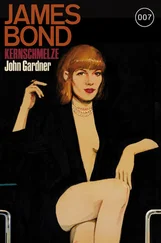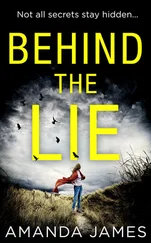John Pearson - James Bond - The Authorised Biography
Здесь есть возможность читать онлайн «John Pearson - James Bond - The Authorised Biography» весь текст электронной книги совершенно бесплатно (целиком полную версию без сокращений). В некоторых случаях можно слушать аудио, скачать через торрент в формате fb2 и присутствует краткое содержание. Год выпуска: 2008, ISBN: 2008, Издательство: Random House, Жанр: Шпионский детектив, на английском языке. Описание произведения, (предисловие) а так же отзывы посетителей доступны на портале библиотеки ЛибКат.
- Название:James Bond: The Authorised Biography
- Автор:
- Издательство:Random House
- Жанр:
- Год:2008
- ISBN:9780099502920
- Рейтинг книги:4 / 5. Голосов: 1
-
Избранное:Добавить в избранное
- Отзывы:
-
Ваша оценка:
- 80
- 1
- 2
- 3
- 4
- 5
James Bond: The Authorised Biography: краткое содержание, описание и аннотация
Предлагаем к чтению аннотацию, описание, краткое содержание или предисловие (зависит от того, что написал сам автор книги «James Bond: The Authorised Biography»). Если вы не нашли необходимую информацию о книге — напишите в комментариях, мы постараемся отыскать её.
James Bond: The Authorised Biography — читать онлайн бесплатно полную книгу (весь текст) целиком
Ниже представлен текст книги, разбитый по страницам. Система сохранения места последней прочитанной страницы, позволяет с удобством читать онлайн бесплатно книгу «James Bond: The Authorised Biography», без необходимости каждый раз заново искать на чём Вы остановились. Поставьте закладку, и сможете в любой момент перейти на страницу, на которой закончили чтение.
Интервал:
Закладка:
Somehow Fleming knew of Bond's connection with the Secret Service. Bond confirms that he pulled his leg about it. ‘It was wrong of him of course, but I imagine I must have been a little pompous about it all. Ian couldn't stand pomposity.’
Fleming apart, the most important person Bond met at Kitzbuhel was a man called Oberhauser. Fleming, who knew him, wrote of his tragic death in Octopussy , and quotes Bond's words to his murderer, the pathetic Major Smythe – ‘Oberhauser was a friend of mine. He taught me to ski before the war, when I was in my teens. He was a wonderful man. He was something of a father to me at a time when I happened to need one.’
As Bond says, the idea of Oberhauser teaching him to ski is a typical piece of Fleming exaggeration. As Fleming knew quite well, Bond could already ski – in his own rough and ready but effective way. But it was Oberhauser, an Olympic medallist and by far the soundest ski instructor in the town, who taught James Bond a little of the style he lacked. Also, as Fleming says, this Tyrolean succeeded in doing what no one else had done for Bond. He got through to him, persuaded him to talk and acted as a sort of father with advice. Bond believes he all but saved his life.
Oberhauser was a realist. Like Bond, he had often found himself face to face with death as he climbed the mountains. He had lost comrades, friends and those he loved; and yet his zest for life was undefeated. Bond talked to him of Fedyeov, of Marthe de Brandt and finally about his parents. The Austrian was sympathetic, but, as he said to Bond, ‘so what?’ Did he intend to live his life out with a load of guilt? Would he continually blame himself whenever things went wrong? If he went on like this, the past would finally destroy him.
What did he suggest, asked Bond, and Oberhauser pointed to the mountains.
‘Climb them,’ he said, ‘and don't look back.’
During those weeks in Kitzbuhel, Bond took his advice, and once again he felt the joy and the renewal of a whole day's climbing. By the time he returned to Paris, the mountains and Oberhauser's words had done their work. Bond had evolved a conscious plan for living. His aim was now to live entirely for the moment and to enjoy the pleasures of his calling to the uttermost. There would be no more remorse and no regret. He would turn himself into what Fleming called ‘a lethal instrument’.
With Maddox's consent he left Geneva, and took a flat in Paris. It was a strange life he was making for himself. Three times a week he used to shoot on the revolver range of the Garde Mobile on the Boulevarde Lans. He swam in the Olympic pool at Vincennes. Kiebermann, the European judo champion, taught him unarmed combat at the Montparnasse Gymnasium. And twice a week he played expensive bridge with Maddox at the fashionable Club Fevrier. He rarely lost. His sexual needs were satisfied by several wealthy married women. It was an iron-clad routine.
Behind it all, Bond was attempting to destroy the softness and weaknesses that were in him. Usually it worked, but he was always conscious of his private enemies. Fleming described him getting sentimental when he heard La Vie en Rose , and there were similar occasions that Fleming never heard of. Sometimes, however hard he tried, his memory and his imagination tortured him. And always in the night there was the hideous fear of cracking. He describes himself as ‘old before my time’. He was cynical and bored, and always in the background lurked something worse than any enemy – world weariness.
But nobody knew anything of this. Outwardly Bond was a young man to be envied – rich, handsome and invulnerable, living a life which would apparently go on for ever. It continued through 1939 like this – then in August, as the German armies massed on the Polish frontiers, he took his favourite married woman off on what he knew would be their final holiday. Cramming the Bentley with champagne, he drove her south. They ended at the Eden Roc at Antibes. Jean Cocteau had just left – the hotel was nearly empty. They had a memorable two weeks. The girl was beautiful, the weather perfect. Bond felt his youth was almost over. When the month ended, she had to join her husband and her children. Bond returned to Paris where he found a movement order from Headquarters to return to London. The big building overlooking Regent's Park was claiming him.
6. Bond's War
‘THE WAR CHANGED everything,’ said Bond, ‘but it's a complicated story and it will take a lot of telling. Right now I feel like a siesta. Perhaps we'll start again this evening after dinner.’
He had an abrupt way of dismissing one, almost as if suddenly upset at the thought of how much he had revealed. With an impatient gesture he pushed back the coffee and went loping off in the direction of the hotel. He had an odd walk, forceful yet relaxed. People made way for him. Whether he really would be taking a siesta, I had no idea.
That afternoon I took a motor-scooter – the standard means of tourist transport on the island – and rode off to the beach. It was a perfect day – the sun exactly the right temperature, the sea the ideal shade of blue. Lazy Atlantic breakers were arriving, as if by previous arrangement, on the meticulous gold sand. It was all most agreeable, but there was something wrong. Was this perfection just a little empty? Didn't this immaculate toy island act as a sort of limbo-land, a background against which one inevitably waited for something, anything, to happen. Already I could feel impatient, and, as for Bond, could all too easily understand his restlessness and longing to be back at work.
And yet the island suited him – the heavy sun-tans and the golden girls, the long cool drinks, striped awnings, and hibiscus-scented evenings – in its own tiny way, Bermuda was authentic Bond-land.
At dinner I looked out for Bond – he wasn't there. But afterwards I saw him in the bar. There was a woman with him. Was this the mysterious companion of the last few days? I felt that Bond would want to keep his woman strictly to himself, but he must have seen me and immediately called me over. He was unusually affable, almost as if relieved to have me there. The woman was, I felt, less welcoming.
‘This,’ he said, ‘is Mrs Schultz. Fleming described her in his book on Dr No, but she was still Miss Ryder in those days – Honeychile Ryder.’
He seemed amused by this. She was quite clearly irritated. She seemed a hard, bad-tempered, very beautiful, rich woman. Certainly she could hardly have been more different from that appealing child of nature Fleming had described living in the ruins of a great house in Jamaica. The golden adolescent with the broken nose had metamorphosed into a tough and all too typical socialite American in her early thirties. As Fleming had predicted, the nose had been remodelled – quite triumphantly; and Honeychile, like Miss Jean Brodie, was in her prime. Bond looked, I thought, a little hunted.
Rather as if making conversation, he told her about the plans for his biography. She thawed immediately – as some women do at the promise of publicity.
‘But James, you never told me. You mean your real biography? Isn't that just what I always said that they should do? I mean those books of Ian's were ridiculous . I never will be able to forgive him for the way he described me in that dreadful book of his. But, darling, I'm so happy for you. Truly, I think that it's the greatest thing that possibly could happen.’
Bond grunted then and asked what I was drinking. He and the Mrs Schultz were taking bourbon on the rocks. I chose the same. Bond, as usual, made it doubles, then steered the conversation firmly away from literature.
‘Honey,’ he explained to me, ‘is cruising. In her yacht. It's her own floating vodka-palace – all eighty feet of it. Twin diesels, state-room designed by David Hicks, a crew of twelve. Somehow she heard that I was here and paid a social call.’
Читать дальшеИнтервал:
Закладка:
Похожие книги на «James Bond: The Authorised Biography»
Представляем Вашему вниманию похожие книги на «James Bond: The Authorised Biography» списком для выбора. Мы отобрали схожую по названию и смыслу литературу в надежде предоставить читателям больше вариантов отыскать новые, интересные, ещё непрочитанные произведения.
Обсуждение, отзывы о книге «James Bond: The Authorised Biography» и просто собственные мнения читателей. Оставьте ваши комментарии, напишите, что Вы думаете о произведении, его смысле или главных героях. Укажите что конкретно понравилось, а что нет, и почему Вы так считаете.












